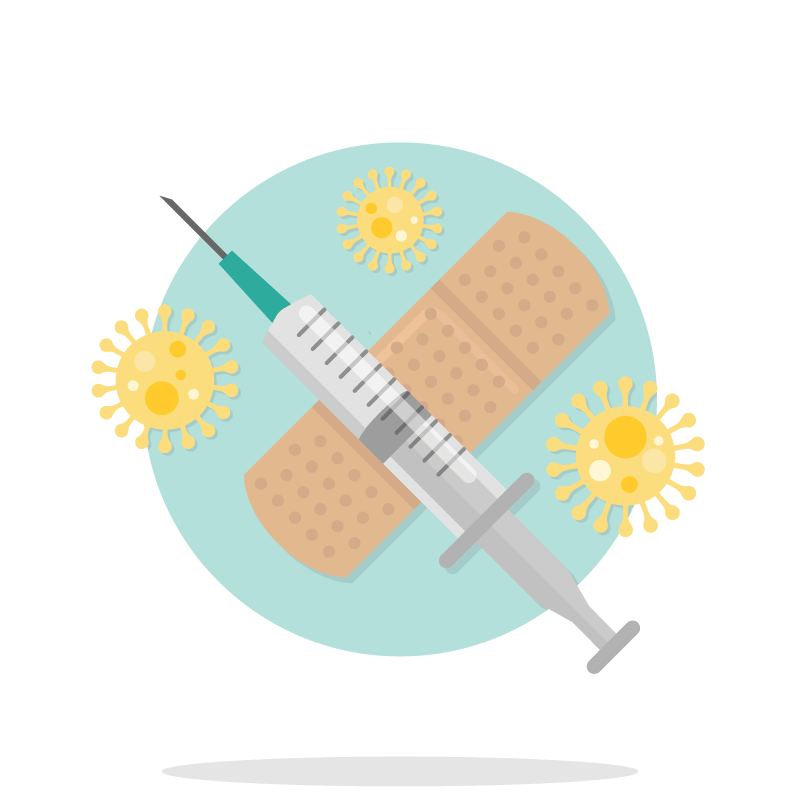QUICK SUMMARY
Why it’s important: A flu shot lowers your odds of getting the flu, which is especially crucial for those at high risk for complications.
Who needs it: Everyone 6 months and up needs a new one every year, unless your doctor says otherwise.
Best time to get it: Before the flu season begins (ideally by the end of October).
What is the flu vaccine?
The flu vaccine protects against the strains of the influenza virus that are most likely to go around each flu season. It comes as an injection (shot) with an inactive or recombinant virus or as a nasal spray (mist) that has a weakened virus (for ages 2 to 49 only). Whichever you get, you can't get the flu from the vaccine.
The common flu strains are different from year to year, and each year scientists predict which three or four should go into the vaccine for the next flu season. That's why an updated vaccine is recommended each flu season, which roughly runs from October through May (but is usually worst from December to February).
Why is it important?
Besides being a horrible way to spend a few days or more, the flu can take awhile to recover from, and can cause severe complications. Flu and pneumonia (a common complication) together rank in the top 10 causes of death in the United States. Getting the vaccine can lower your odds of getting sick.
Those at high risk of complications include:
- Young children (under age 5 but especially under age 2)
- Adults over 65
- Pregnant women
- Nursing home residents
- People with certain medical conditions including asthma, diabetes, and heart disease
- People with weak immune systems
- People who are extremely overweight (BMI over 40)
- People with medical conditions such as asthma; neurological and neurodevelopmental conditions; chronic lung disease; heart disease; blood disorders; endocrine disorders; kidney disorders; liver disorders; metabolic disorders; and weakened immune systems.
- People younger than 19 years of age who are receiving long-term aspirin therapy
Who needs it?
- Everyone ages 6 months and up should get an annual vaccine (unless your doctor says otherwise).
- Those over 65 can get a special higher-dose vaccine or an adjuvanted vaccine, only available as a shot. The adjuvanted vaccine contains an additive that creates a stronger immune response to the vaccine.
- Pregnant women, and people with certain chronic health conditions, should get the shot (not the nasal spray).
What to expect
Experts say it's best to get your vaccine before the flu season begins, ideally by October. If you get the shot, expect a quick poke and some soreness at the spot. The nasal spray is painless — it just gets squirted up your nose while you breathe in.
Afterward, most people are fine but some can have mild symptoms like sniffles, a low fever, tiredness, or achy joints.
Good to know
Even if you get a flu vaccine, you might still get sick — but chances are you won't get as sick as someone who didn't get one. There are a few reasons for this: It takes about two weeks to build up immunity after your vaccine so you can still get the flu during this time ; the shot could turn out to be a weak match against the flu strains going around; and people with weak immune systems might not build up as much immunity as healthy people.
Selected references
Centers for Disease Control and Prevention (CDC). Influenza (Flu). Last updated February 2019.
Centers for Disease Control and Prevention (CDC). Vaccination: Who Should Do It, Who Should Not, and Who Should Take Precautions. Last reviewed September 2018.
Centers for Disease Control and Prevention (CDC). People 65 Years and Older & Influenza. Last reviewed December 2018.
STAFF
Rally Health





